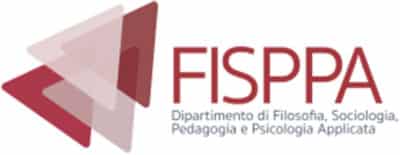
Master OCLLL Open Day 11 – 19 November 2025, 6:00 PM (CET)
Online information session introducing the Master’s programme.
The Master in Organizational Coaching: Leadership and Lifelong Learning provides a thorough education on the principles and practices of organizational coaching, and is designed for graduates, professionals and entrepreneurs who manage teams and communities in organizational contexts.
Organizational coaching comprises several levels, such as the executive, team and leader grade, and promotes leadership and ongoing education, by focusing on how to improve people’s behaviour in organizations through learning, development and coaching. The program adopts a participative and active learning approach, and provides specific credentials for personal and professional development.
The Master in Organizational Coaching: Leadership and Lifelong Learning promotes the development of specific professional coaching competences. Attendees will master organizational coaching methods and practices, and will be exposed to actual coaching experiences to increase their knowledge and skills.
Special focus is on research-action methods, feedback giving, assessment and evaluation, and the relationships with customers/coachees. The course is provided online in synchronous and/or asynchronous mode.
The Master includes synchronous coaching practice and a final project. The final evaluation to obtain the open badge consists in:
• Creation of an e-portfolio (individual project)
• Oral presentation in pairs of the final project before the committee (three professors).
At the end of the course, the final project will be graded as passing, decent, good, excellent.
The Master includes synchronous exercises on coaching practices and the completion of a project. The course ends with a final exam.
The Master in Organizational Coaching: Leadership and Lifelong Learning opens up several career opportunities, especially in the professional coaching field, a growing sector focusing on how to help individuals and organizations reach challenging objectives and fulfil their potential.
The program develops several professional coaching profiles: the executive coach, who works with leaders and corporate managers to improve decision-making processes and performances. The career coach, who helps customers identify the opportunities and strategies for professional growth. The leadership coach, who works with leaders to develop and improve their effectiveness. The team coach, who improves group dynamics, collaboration and productivity within an organization. And the business coach, who works with entrepreneurs to develop and expand their companies, by providing strategic indications, troubleshooting and goal achievement tips.
In organizations, coaching competences are essential to manage HR, and in particular: to promote learning and growth; to develop talent and potential; to tackle challenges and overcome critical issues; to support and facilitate change and innovative progress.
The Master in Organizational Coaching: Leadership and Lifelong Learning includes the following modules and units:
FUNDAMENTALS OF COACHING – Theory, research and practice of coaching in organizations; related ethical implications.
- Theoretical approaches and models
- Professional implications and ethics
ADULT EDUCATION – Theories and models, applications in organizational contexts.
- Lifelong learning and ongoing education
LEADERSHIP IN ORGANIZATIONS – Theories and models of leadership, and applications in personal and private life.
- Leadership development coaching
- Transformational leadership coaching
CAREER DEVELOPMENT – Traditional and contemporary career development in adults; technology and assessment of career and organizational matters.
- Team coaching professional development
- The role of coaching in career issues
- Reflective practices to develop a personal career
DIVERSITY, EQUITY AND INCLUSION – Coaching, diversity and inclusion in organizations (age, class, race, gender and other identities and positions).
- Differences between groups
- Promoting the values of diversity
PSYCHOLOGY OF PERSONNEL AND DIVERSITY – Theoretical and practical fundamentals in managing human resources, performances and diversity.
- Introduction to personnel psychology
- Intercultural issues in recruitment, selection and management of performances.
COACHING METHODS AND PRACTICES – Methods and practices of organizational coaching. Process management, use of evaluations, feedbacks, interventions.
- Development and use of the coaching toolbox
- Methods and practices of organizational coaching
- Organization interventions
BUILDING A COMMUNITY OF PRATICE IN ORGANIZATIONS – Social construct of knowledge in organizational systems. Models and effective strategies for operating and organizational communities.
- Processes and strategies to develop a community of practice
- Tool configuration
- Development-oriented activities
TEAM AND GROUP COACHING – Coaching strategies to develop teams and groups in organizations and communities.
- Activities to develop team coaching practices
- Use of technology
- Facilitation
PLANNING AND ASSESSMENT OF COACHING INTERVENTIONS IN ORGANIZATIONS – Theory and practice of planning to create coaching plans.
- Planning of coaching interventions for organizations
- Use of feedbacks
- Monitoring and assessment of the coaching success
- Understanding the impact of coaching
DEVELOPING COACHING ABILITIES/COMPETENCES – Strategies and techniques to develop the competences required from the professional profile.
- Coaching skills for team development
- Developing strategic organizational coaching skills
DEVELOPING A COACHING CONSULTANCY – Launching a coaching consultancy business.
- Consultancy methods and strategies
- Consultancy practices
The Master is addressed to:
- Graduates
- Executives
- Professionals
- Corporate leaders
- Entrepreneurs
- Educators
- Community operators
- School directors
- University syllabus coordinators
- Teachers
- University professors
- Third-sector institutions executives
Administrators with executive roles in public and private institutions.
The general ranking of merit for the academic year 2025/26 will be published on the Italian page of this Master according to the timing provided in the Call.
Information
Get the brochure
"*" indicates required fields
FAQ
Synchronous online activities include interactive and practical sessions. Asynchronous activities include self-learning materials, audio-video units, and short individual or group practices.
The project work is a soft-skill activity called E-portfolio, which covers the key aspects of all master modules, by describing in details the tools, theories, practices and crucial ideas that can be applied as a coach. It is a narrative, scientific, reflective and critical tool that accompanies attendees during their learning process.
Attendance if at least 70% of the course is mandatory.
University of Padua – Viale Porta Adige, 45, 45100 Rovigo. Please remember that all lessons will be provided online.

